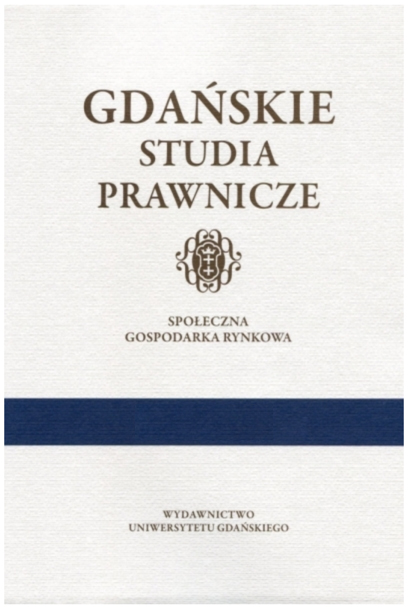Podstawowe wartości jurysprudencji rzymskiej
Core values of the Roman jurisprudence
Author(s): Zdzisław Brodecki, Beata Jolanta KowalczykSubject(s): History of Law
Published by: Wydawnictwo Uniwersytetu Gdańskiego
Summary/Abstract: Roman law that serves as a prototype of contemporary legal culture was the most signifcant achievement of Roman society which was socially divided but had some famous individuals who created an outstanding jurisprudence. Its representatives were the first in the world who treated law as an object of scientifc study and their activities gave rise to legal reasoning methods such as analogy or a minor ad maius and reductio ad absurd-um arguments. All of them have been adopted by modern science of law. What is more, the Roman values such as legitimacy (aequitas), usability (utilitas), humanitas, good faith (bonafdes) or effectiveness (effcientia) are the eminent monuments of extraordinary craftsmanship. The recognition of the prototype of acquis communautaire and the joint ius gentium in the achievements of the Roman jurisprudence allows to notice the advantages of the legalculture of ancient Rome. Each of the values (which are many) was expressed by means of specifc legal institutions. For example, procedural dignity was implemented througha number of measures aimed to protect individual’s rights in judicial proceedings (action in civil procedure, the principle of transparency and directness in a criminal procedureor actio iniuriarium in the proceedings before administration). The legal culture of ancient Rome has shown us how Romans created the idea of changing law without organized structure and the tradition of the efficient and radical reforms of law. Bearing in mind the definition of law created by Celsus, who perceived it as an ability to apply what is good and right, it must be recognized that the most important role in this process was played by Roman jurisprudence and officials (mostly Praetor). Jurists used to develop law, and officials applying rational procedures within their power (iurisdictio) used it effectively. It all adds up to the image of an efficient state, in which rational procedures based on fairness are implemented in order to create a rational law and effective governance.
Journal: Gdańskie Studia Prawnicze
- Issue Year: 2016
- Issue No: XXXV
- Page Range: 101-117
- Page Count: 17
- Language: Polish

